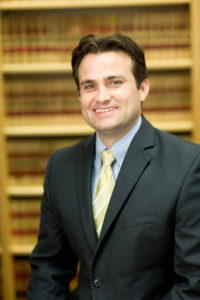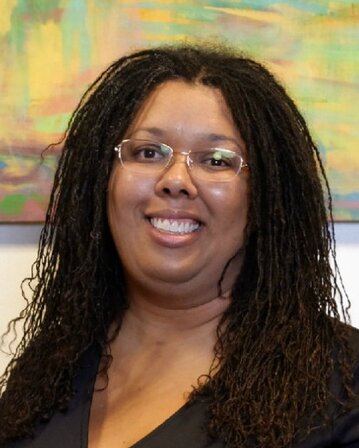Monthly Archives: August 2021
Aug 31, 2021 Ilya SominConstitutional Law
Over the last few months, President Joe Biden has granted Temporary Protected Status (TPS) to some 300,000 Venezuelans living in the United States and 100,000 Haitians. As a result, these people will be able to remain in the U.S. without fear of deportation for another 18 months. Once again, the fate of hundreds of thousands of people fleeing oppression, poverty, and violence turned on the will of a single man. Yet, important as they were, Biden’s TPS decisions attracted little public attention beyond the community of experts and others who follow immigration issues closely. That is in large part because we have grown so used to the idea that enormous swathes of immigration law and policy are under the control of the White House. The recent TPS decisions are just the latest manifestation of this trend.
Adam Cox and Cristina Rodríguez’s book The President and Immigration Law is likely to become the definitive work on the growth of executive power in this field. As they describe, the executive branch has come to wield vast discretionary power over immigration policy, even though nothing in the text or original meaning of the Constitution grants the president that power. At the time of the Founding, the dominant view was that the Constitution did not give the federal government any general power to exclude and deport immigrants at all, much less that such authority would come to rest in the hands of a single person and his subordinates. Continue reading "Perils of the Growth of Executive Power Over Immigration"
Aug 30, 2021 Christopher WalkerAdministrative Law
Emily S. Bremer,
The Rediscovered Stages of Agency Adjudication, 99
Wash. U. L. Rev. __ (forthcoming), available at
SSRN.
A couple years ago, Melissa Wasserman and I charted the new and old worlds of formal agency adjudication. The old world, we explained, consisted of the traditional formal adjudication framework under the Administrative Procedure Act (APA), with a trial-like hearing before an administrative law judge (ALJ). Drawing on the work of Michael Asimow, Kent Barnett, and others, we explained that the new world is more diverse and varied. Hearings do not take place just before the nearly 2,000 ALJs in the federal system, but also before more than 10,000 administrative judges, hearing officers, and examiners who are not governed by the APA’s formal provisions. We argued that, in both the old and new world, agency head final-decisionmaking authority remains the standard (and preferred) model—something the Supreme Court in United States v. Arthrex seemed to suggest may be constitutionally required earlier this year.
Another way to conceptualize the old and new worlds is that there is a type—or mode—of agency adjudication (Type B) between the APA’s “formal” (Type A) and “informal” (Type C) modes. In recent years, much scholarly inquiry has focused on the distinctions between Type A and Type B, including an entire issue of the Duke Law Journal. Despite this sustained attention, it turns out that our understanding of adjudication under the APA may be based on a historical misunderstanding. In The Rediscovered Stages of Agency Adjudication, Emily Bremer examines the historical record and concludes that, at the APA’s founding, “informal and formal adjudication were not viewed as alternative modes, but rather as consecutive stages.” It is not often that an article requires a field to fundamentally reconsider its foundations. Yet, Bremer’s Rediscovered Stages is such an article for administrative law (and agency adjudication in particular). Continue reading "Unearthing the Lost World of APA Adjudication"
Aug 20, 2021 Felix MormannLexEnergy Law
Madison Condon,
Externalities and the Common Owner, 95
Wash. L. Rev. 1 (2020), available at
SSRN.
At Chevron’s 2020 annual meeting, a majority of voting shareholders approved a resolution urging the oil giant to bring its lobbying efforts in line with the Paris Climate Agreement’s goal of limiting global warming to two degrees Celsius. What seemed like a pipe dream not long ago has become a fixture on Wall Street. Climate activism has emerged as a dominant theme at shareholder meetings in the energy sector and beyond, with some resolutions receiving nearly sixty percent of votes. In her excellent article, Externalities and the Common Owner, Professor Madison Condon draws on modern portfolio theory to offer an intriguing explanation for the changing tide in shareholder climate activism.
In recent years, concerned shareholders have garnered majority approval for resolutions calling for corporate emission reduction targets, better disclosure of climate risk, and suspension of lobbying against carbon regulation, among other climate action – often against the vocal opposition of the company’s own board. This surge in shareholder support for climate-related proposals is likely the product of a multitude of factors, including the growing sense of urgency surrounding global climate change. Professor Condon makes a compelling case that a key driver of shareholders’ newfound love for climate activism may be a paradigm shift in the approach of institutional investors to corporate governance. Continue reading "Deconstructing Shareholder Climate Activism: Why Institutional Investors Are Bullying Carbon Majors"
Aug 19, 2021 Aditi BagchiContracts
The last couple decades in Europe have been an exciting time for private law. European integration created a dazzling opportunity to articulate a distinctly European private law, potentially even overcoming the classic line between common and civil law.
As it happens, even before the departure of the United Kingdom from the European Union, this project failed in its more ambitious forms. Although legal convergence would fit the mandate to harmonize the common market, it turned out that there was substantial disagreement even within continental Europe about what a European private law should look like.
The quiescence of the convergence project has actually opened space for a less politically fraught and doctrinally constrained discussion of contract law in Europe. Delinked from the political will to integrate or constitutional constraints on what the basis for a common framework could be, the conversation has broadened to ask first order questions about the basis for contract law in Europe. That conversation just got a big theoretical boost from Martijn Hesselink. Continue reading "Let’s Have a Legitimacy Crisis about Contract Law"
Aug 18, 2021 Alexander Boni-SaenzTrusts & Estates
Felix B. Chang,
How Should Inheritance Law Remediate Inequality?, 97
Wash. L. Rev. __ (forthcoming, 2022), available at
SSRN.
In United States inheritance law, we typically listen to what the person with the money wants. In his provocative essay, How Should Inheritance Law Remediate Inequality?, Professor Felix Chang challenges this bedrock principle of freedom of disposition and proposes a new vision of inheritance law that centers intergenerational economic mobility instead. By linking trusts and estates to other fields, such as business and tax law, this piece raises a host of interesting questions about whether inheritance law can truly address societal wealth inequality.
Chang starts by tracing the twin histories of inheritance law scholarship and estate tax policy. He starts in the 1970s, when the estate tax was relatively expansive, and the seminal scholarship of Professor John Langbein was just taking off. Much of Langbein’s work concerns how to improve the inheritance law system by making it more faithful to testamentary intent. However, a lot has changed since the 1970s. The group Chang describes as The Repealers—a coalition of the ultra-rich, anti-tax activists, and Republican politicians—has largely been successful in significantly weakening the estate tax, as now a significant amount of intergenerational wealth escapes untaxed. At the same time, a new vein of critical legal scholarship has arisen in the legal academy. It is more concerned with questions of distribution and notably more skeptical about promoting testamentary intent, at least when it serves to promote dynastic wealth and tax evasion. Continue reading "A New Central Principle for Inheritance Law?"
Aug 17, 2021 Kerri Lynn StoneWork Law
In Male Same-Sex “Horseplay”: The Epicenter of Sexual Harassment?, Professor Kimberly D. Bailey explores the depth and limits of one of the carveouts given sanction from sexual harassment liability by the Supreme Court in its 1998 decision, Oncale v. Sundowner Offshore Services: male horseplay. In Oncale, the Supreme Court acknowledged that same-sex sexual harassment is actionable under Title VII, but also stated that horseplay among male employees was not sexual harassment. Using a “masculinities-modified” lens, Professor Bailey delves into the notion that even gender-conforming men have gendered relationships and interpersonal interactions in order to properly classify a lot of what has been presently dismissed as “horseplay” as sex discrimination in the workplace.
Masculinities theory approaches structural and other sex discrimination against women by focusing on men: how they are socialized, and how they perform masculinity. Using this lens, Professor Bailey elaborates upon the often-levied critique that Oncale would, as she put it, “reinforce[] the sexual desire paradigm.” (P. 95.) Bailey explains that horseplay is often “masculinity competition that leads to harassment among gender-conforming men.” Therefore, she concludes that gender-conforming men are deprived of a good deal of legal protection to which they should be entitled under Title VII, advocating for the abolition of the male-horseplay carveout in order to eradicate sexual harassment more broadly in the workplace. (P. 95.) Continue reading "No More Haven For Horseplay?"
Aug 16, 2021 Tom SimmonsLexElder Law
In Legislating Supported Decision-Making, Professor Nina Kohn tackles the deficiencies of the supported decision-making paradigm, beginning with its definition, which varies tremendously depending on who you ask. She defines it as “an umbrella term for processes by which an individual who might otherwise be unable to make his or her own decisions becomes able to do so through support from other people.” (P. 4.) Supported decision-making (or SDM) represents a fundamental shift in the fields of elder law and disability rights. It is an extension of the people-centered approach. SDM promoters claim that it enhances the dignity of individuals with cognitive limitations by permitting decisions to be made with them—rather than for them.
States can and should use SDM in many contexts. Individuals under a guardianship ought to be empowered to participate in decisions about their lives, their healthcare, their financial affairs, and so on. SDM can thereby permit more limited guardianships. Moreover, for higher functioning individuals, SDM can provide an alternative to a guardianship proceeding altogether. Because SDM is less restrictive alternative, it should be preferred to a guardianship whenever feasible. Continue reading "Reinforcing Autonomy and Displacing Guardianships with SDMs"
Aug 13, 2021 Edward DoveHealth Law
Rachel Douglas-Jones
, Committee as Witness, 39
Cambridge J. of Anth. 55 (2021), available at
Berghahn Journals.
In her recently published article in the Cambridge Journal of Anthropology, Dr. Rachel Douglas-Jones, an Associate Professor at the IT University of Copenhagen, investigates how research ethics committees (RECs, or IRBs as they are known in the United States and some other countries) witness research that has yet to occur. For those of us in law, “to witness” holds particular meaning. According the free Legal Dictionary (to take a relatively trite form of research at my desk), a witness is one who, being sworn or affirmed, according to law, deposes as to their knowledge of facts in issue between the parties in a cause. For those who remember their law school lectures in civil and criminal procedure, there are a variety of rules and tests to determine competence to give evidence qua witness, and compellability of witnesses. To witness, and to be a witness, holds particular power in law.
But to witness also holds other forms of meaning, and can be a powerful concept in extra-legal circumstances, too. Douglas-Jones, as an anthropologist, is less interested in the legal meaning of “witness” (though, as an aside, it would make for an interesting area of investigation in legal anthropology). She is instead keen to better understand how RECs, particularly those in the Asia-Pacific region where she spent a number of years conducting research, rely on “visual cultures”–“spatial and temporal forms that underpin [their] capacity to speak”–to render a collective decision on the ethical acceptability of a research project even before the research itself happens. Her article is an excellent one that is deserving of a wide readership. Continue reading "How Research Ethics Committees Act as a “Witness” to Research"
Aug 12, 2021 Saru MatambanadzoEquality
The murder of George Floyd forced a national conversation and the re-invigoration of our unfinished national racial reconciliation project. In the summer of 2020, as COVID-19 infections spread due to governmental failures, George Floyd was held down, choked, and murdered in Minneapolis, Minnesota by an agent of the state. This murder occurred in front of witnesses like Darnella Frazier, who bravely videotaped it and shared it with the world. Reacting to these events, universities undertook initiatives to address shortcomings in racial equity and to meet demands of students, faculty members, alumni, and community stakeholders. At law schools responsive to these calls, this involved many acts, including embracing the adoption of anti-racism solidarity statements, creating academic centers focused on blackness like the study of race and law, establishing the endowment of scholarships and job opportunities for minority students, and hiring more scholars of color.
Against this backdrop comes a breathtaking, but brief, essay by Professor Carliss Chatman and Professor Najarian Peters. This essay, a skillful example of protest literature, performs the difficult task of truth-telling about legal education as it relates to hiring minority faculty members. It indicts the left-legal liberalism of the legal academy, demonstrating how those who espouse the goal of diversifying the legal profession often fail to make change in terms of their hiring practices. Through storytelling, a classic method and weapon in skillful hands like theirs, the authors paint a picture that is familiar to many individuals who are the “diversity people” on their respective hiring committees. Navigating a landscape of legal professionals who consider themselves liberal and claim not to be racist, the authors reveal how shifting standards, implicit bias, and constant contradictions shape the hiring process at most law schools leading to one ultimate result: law schools fail to hire faculty members of color, particularly Black, Latino, and Indigenous individuals, even when they are highly qualified for these roles. Continue reading "Dancing Around Change: An Honest Engagement with the Perils of Performativity in Law School Hiring"
Aug 11, 2021 Ronen AvrahamTorts
Edward Cheng, Ehud Guttel and Yuval Procaccia,
Sequencing in Damages, 74
Stan. L. Rev. __ (forthcoming, 2022), available at
SSRN.
My favorite type of paper is the type where you hit your forehead asking yourself: how did I miss this simple point? How did everyone else miss it? Why didn’t I write this paper myself, given that its main insight was under my nose for so many years? In Sequencing in Damages, Edward Cheng, Ehud Guttel and Yuval Procaccia (hereinafter: CGP) made me hit my forehead. The paper is forthcoming in the Stanford Law Review, and deservedly so.
CGP’s paper is about law’s arithmetic. It is a well-known stereotype that students go to law school because they cannot stand math. Perhaps this is why lawyers, judges and law professors seem to fail in applying what looks like really simple math.
Consider the following elementary school exercise:
(1,200,000-400,000)* ½ = 1,200,000 * ½ -400,000
True or False? Continue reading "Law’s Arithmetic"















